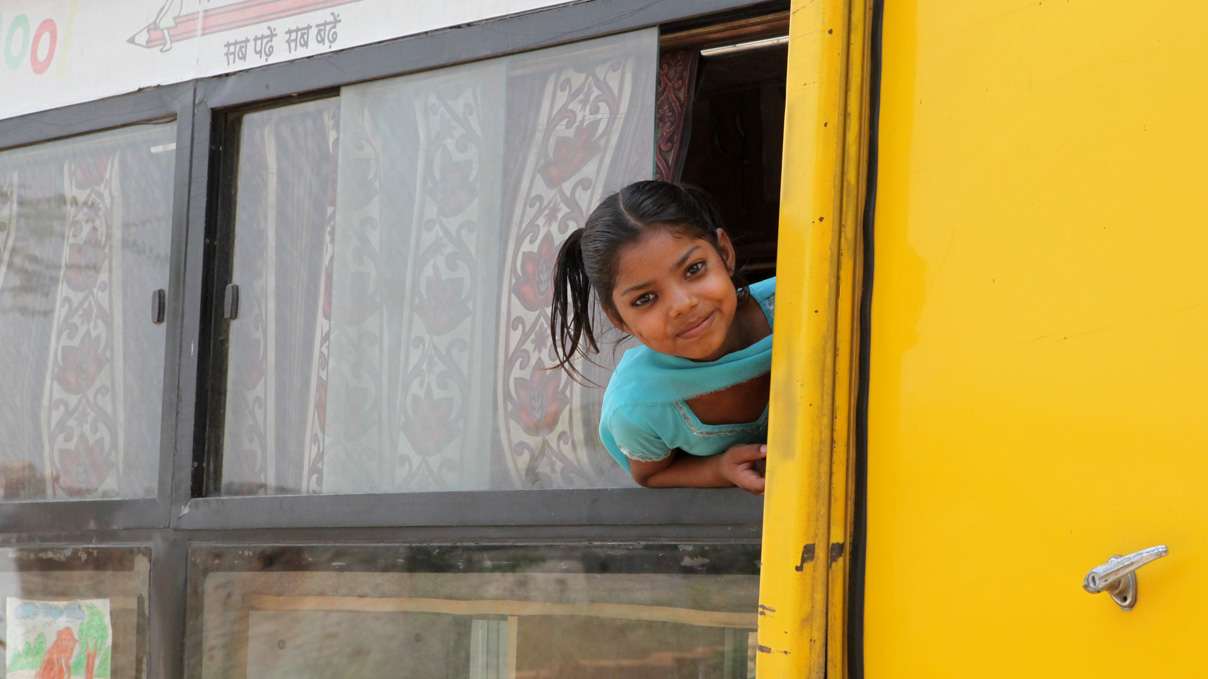"Bus schools", old school buses converted into mobile classrooms, are giving Delhi's poorest children the chance to attend lessons, many for
the first time.
"It's bad when we are told that we are an illiterate group and that we don't know anything," says Nishi, one of the children enrolled in the programme.
 View the film on Bus Schools in Delhi |
The aim of the bus schools is to eventually enrol the children in formal education.
Bus Schools is IRIN's latest film in the Kids in the City series. These short films tell the stories of children surviving in different cities around the world.
Other films in the series include: Breaking Rocks, a story about children working in construction in Sierra Leone; Surviving Rape, which looks at South Africa's rape crisis; Home Alone, featuring four AIDS orphans living in Uganda's capital, Kampala; The Weigh Scale, about a 14-year-old boy in Phnom Penh, Cambodia, who weighs people for a living, and The Dump Site, which tells the story of children scavenging in Nairobi's Dandora rubbish tip.
This article was produced by IRIN News while it was part of the United Nations Office for the Coordination of Humanitarian Affairs. Please send queries on copyright or liability to the UN. For more information: https://shop.un.org/rights-permissions





